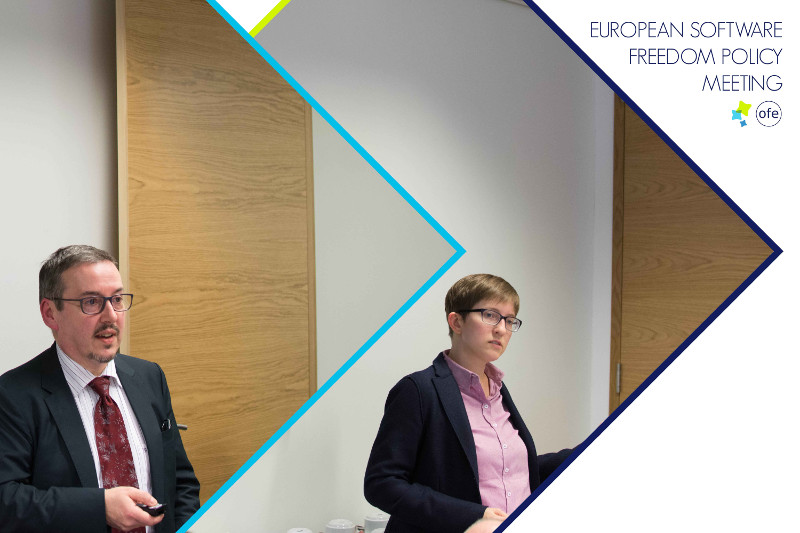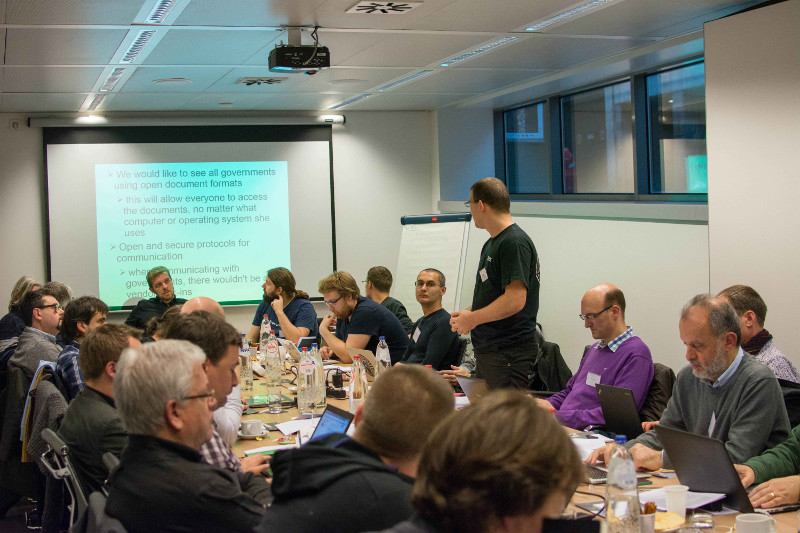European Free Software Policy Meeting 2016
Traditionally, Brussels is the place to go for Free Software enthusiasts and developers at the end of January. During FOSDEM, hundreds of experts talk about their beloved project and discuss the past, present and future of Open Source. It is a great place for meeting like-minded people.
At the afternoon before the start of the conference, the Free Software Foundation Europe and OpenForum Europe organised a meeting of representatives of Free Software related action groups of all sorts. 19 organisations were present. The purpose of the meeting was to learn about each others activities, with an emphasis on public policy related actions.
It was great to have Julia Reda, Member of the European Parliament, with us at the meeting. She spoke about the Parliament's initiative to ask the Commission to take an initiative to improve the quality control practices around essential Free and Open Software used in critical infrastructures (FOSSA) and about the support for Free Software as expressed in the Parliament's report on the Digital Single Market initiative of the Commission. In this report, the Parliament:
"Considers that software providers should better promote the security advantages of open source software and security-related software upgrades to users; calls on the Commission to explore an EU-wide coordinated vulnerability disclosure programme, including the repair of known software vulnerabilities, as a remedy against the abuse of software vulnerabilities and security and personal data breaches".
"Urges the Commission and the Council to increase the share of free and open source software and its reuse in and between public administrations as a solution to increase interoperability".
"Calls for the increased use of free and open source software, particularly in educational establishments and public administrations".
Pierre Damas, a representative of the IT department of the European Commission presented the Open Source Software strategy of the Commission, demonstrating the importance Free Software has for the Commission's IT infrastructure and the commitment of the Commission to use Open Source Software as the basis for all software development that has the potential to be re-used elsewhere.
Each of the organisations present made a short presentation on the nature of the organisation and on its major public policy related campaigns. As major policy issues came forward the lack of possibilities to offer Free Software in public tendering procedures, mainly due to lock-in effect and the use of non-open standards and proprietary formats and the continuous pressure of big proprietary software providers on politicians to reverse decisions that favour the use of Open Source Software in public administrations. Many organisations are also interested to work around the question if software the development of which is paid for by taxpayer's money should, in principle, be made available under a Open Source/Free Software license which grants everybody the right to use it for any purpose, to study how it works, to share it with others, and to improve it.
We agreed that we have to continue working on the goals we share and exchange information with each other. To do so we will set up a mailinglist to continue discussions between the participants, and other groups working on Open Source policy issues in Europe. In order to maintain this collaboration, we are determined to make the pre-FOSDEM meeting a tradition, so Free Software groups can meet up and exchange views and ideas.

